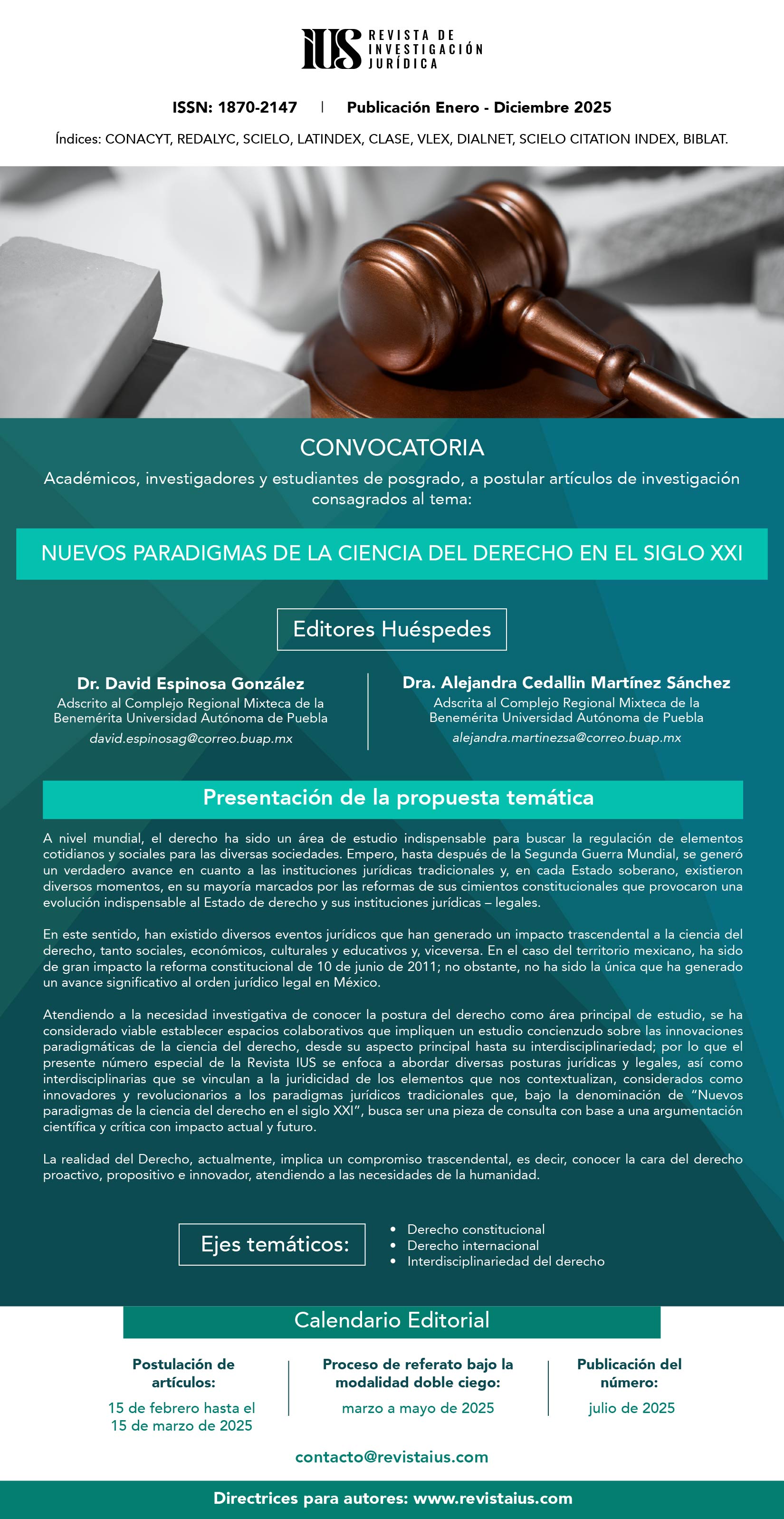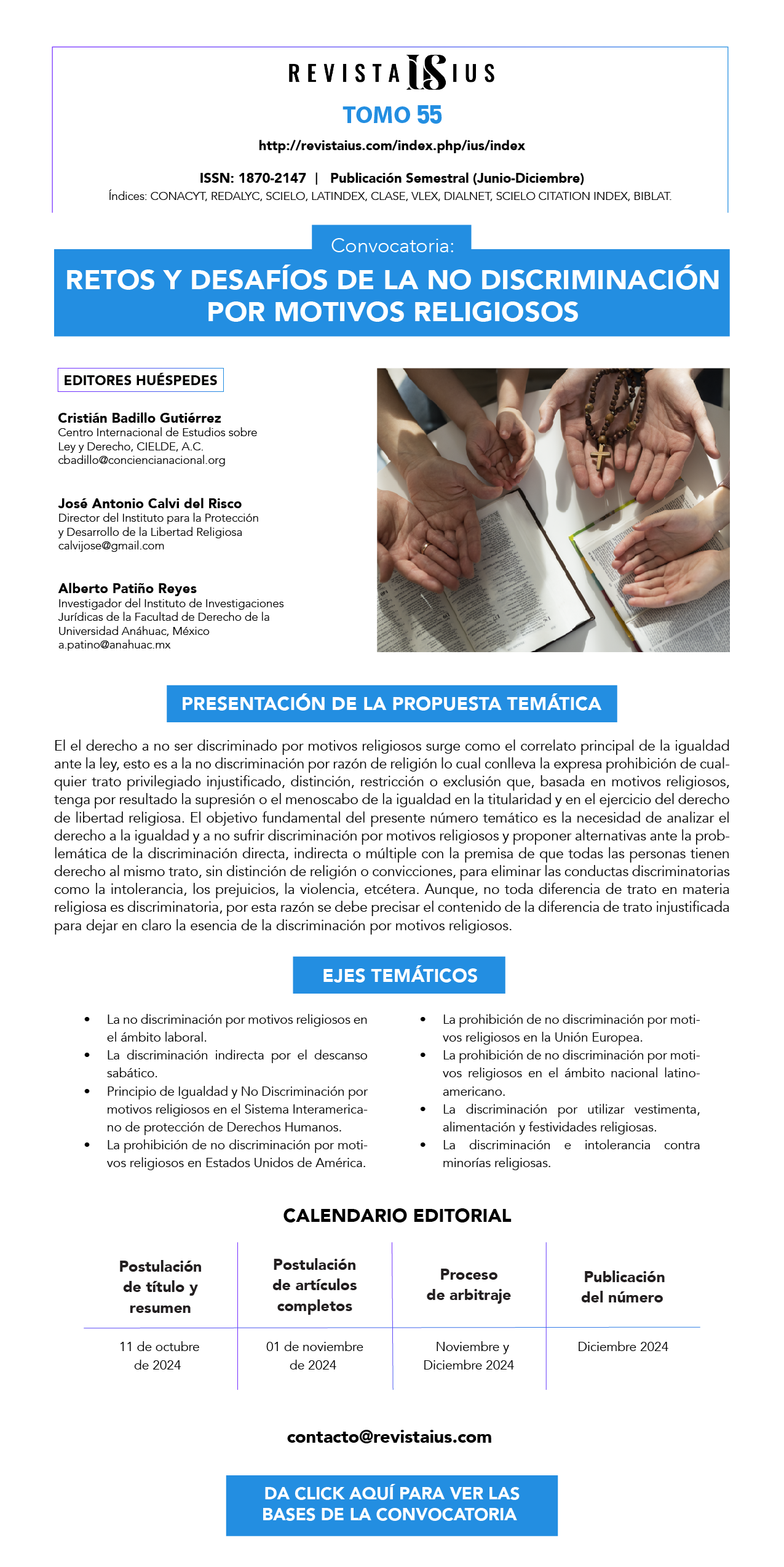The prison in Chile: a paradoxical opportunity for restoring rights, social insertion, and public safety
DOI:
https://doi.org/10.35487/rius.v17i51.2023.915Abstract
In this article we propose that imprisonment in Chile
can offer a paradoxical and last possibility of restitution
of rights, of social insertion and of reduction of the
criminal recidivism of the imprisoned people. To do
this, we conceptually rely on the criticism made by
Ángela Davis of “human surplus” regarding those who
are deprived of liberty. As empirical support for our
central premise, we rely on various secondary sources
that speak both of the levels of social exclusion of the
population deprived of liberty in the country and of the
possibilities of reducing recidivism when conditions and
dignified treatment exist during the detention phase.
lockdown. In this sense, the current composition of
the prison system in Chile contemplates as one of its
main characteristics the high levels of vulnerability and
exclusion of people who are deprived of liberty. Likewise,
during the confinement stage, and due to the precarious
operating conditions of the Chilean penitentiary system,
these initial disadvantages are amplified, thereby
generating favorable conditions for recidivism.
Downloads
Downloads
Published
Issue
Section
License

This work is licensed under a Creative Commons Attribution-NonCommercial-ShareAlike 4.0 International License.
Revista IUS, published by the Legal Sciences Institute of Puebla A.C., is distributed under the Creative Commons Attribution-NonCommercial 4.0 International (CC BY-NC 4.0) license.
We authorize collaborators to upload a copy of their published work on their personal websites or any Open Access repository, provided that Revista IUS is specifically cited as the original source, indicating the year and issue of the respective example and adding the link to the webpage on which this publication can be freely consulted in toto and without charge: http://www.revistaius.com
Readers are free to:
Share, copy and redistribute the material via any medium or format.
The licensor cannot revoke these freedoms as long as you follow the license terms.
Under the following terms:
Attribution: You must give appropriate credit, provide a link to the license, and indicate if changes were made.
You may do so in any reasonable manner, but not in any way that suggests the licensor endorses you or your use.
NonCommercial – You may not use the material for commercial purposes.
If you remix, transform or build upon the licensed material, its distribution is not permitted.
Charges for managing articles: Revista IUS will not charge for receiving, processing or publishing articles (Article Processing Charge, or APC) submitted by authors.





